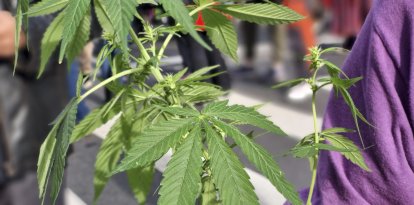Yale puts progressive agenda before merit when hiring biochemists and biophysicists
This university department prioritizes job applicants' commitment to DEI initiatives.

(Archivo / Wikimedia)
One of the main requirements for professors seeking employment in the Department of Biophysics and Molecular Biochemistry at Yale University is related to their commitment to DEI (diversity, equity and inclusion) policies.
Everything seems to indicate that this department puts the progressive agenda before the professional experience and merits of the applicants. In fact, one of the categories evaluates whether candidates understand the specific challenges of “underrepresented minorities.”
These requirements raise serious concerns related to freedom of speech and, of course, the unusual priorities of a renowned university like Yale.
In an article published in The Free Press, John Sailer revealed that any professor who wants to teach at Yale must put DEI at the center of every decision they make.
The job offers that the university publishes have the knowledge of the DEI as their main requirement of each candidate, as well as their commitment to promoting these initiatives.
The job ads also place great importance on job applicants' experience with DEI issues and call on candidates to describe their future plans regarding this policy.
To gauge applicants' commitment to DEI, Yale's website asks a series of questions that challenge professionals to reveal how they would apply an approach related to race, gender and sexual orientation in the scope of their work.
According to the website, applicants will not earn any points if they do not have any knowledge of DEI issues, do not feel a personal responsibility to create an “equitable” and “inclusive” environment, have not participated in activities that promote these initiatives or do not plan to carry out activities related to this policy.
However, those applicants who have extensive knowledge about DEI and a strong interest in promoting it in classes or who have extensive experience in carrying out this type of activities will have an advantage. They would also benefit if they can show a clear plan to promote DEI through education.
Obsession with hiring 'underrepresented' teachers
In a article published last year by Yale Daily News, William Porayouw noted that in a report published in December 2022, the university highlighted increases in diversity among faculty, a measure that was part of the Teaching Excellence and Diversity Initiative, for which $85 million was invested.
The report indicates that among faculty who started at Yale in the fall 2022 semester, 21% came from “underrepresented” backgrounds. And he adds with pride that a decade before, this applied to only 6% of faculty.
However, Porayouw continued, according to subsequent data, only 6% of engineering and applied sciences professors came from "underrepresented" racial minorities. This fact worried Kimberly Goff-Crews, secretary and vice president of university life at Yale, who said the Faculty Excellence and Diversity Initiative was working hard to recruit "underrepresented" faculty.
Prayouw's article, which focuses on faculty diversity rather than merit, and the subsequent reaction of a university official to "correct" a "problem" related to diversity and inclusion at the institution, demonstrates that the strange way of hiring at Yale is not typical of a single department, but, apparently, is a broader policy, which has little to do with the professionalism or work experience of applicants.
























